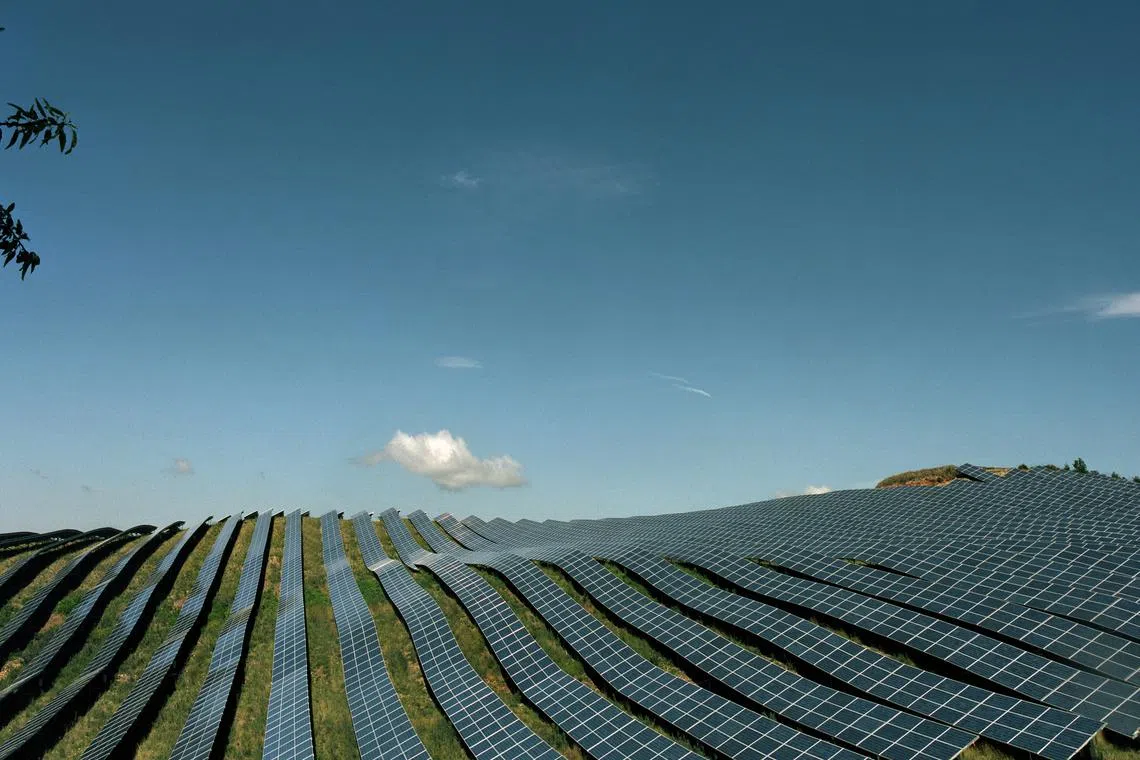Win-win situation: How solving AI’s energy appetite can create new investment opportunities
With an increase in demand for sustainable energy sources, asset manager Brookfield has opened up novel ways for investors to capture growth while saving the environment
Charlotte Kng YT
THE global race to adopt artificial intelligence (AI) has transformed many sectors – but it is also fueling a surge in energy consumption.
For example, each prompt entered into generative AI chatbot ChatGPT uses about 2.9 watt-hours (Wh) of energy. This is nearly ten times the energy needed for a single Google search. At scale, the energy consumption of data centres powering advanced AI rivals that of entire cities and, in some cases, small countries.
According to estimates by the International Energy Agency, these energy guzzlers are expected to consume as much power as the country of Sweden – and potentially up to as much as Germany – by 2026.
However, fossil fuels – the primary energy source for today’s electricity grids – are finite, making them costly to use. As a result, there is an urgent need to identify a power source that is both environmentally and financially sustainable to meet the tech sector’s growing energy demands.
This is why the recent deal between tech giant Microsoft and Brookfield Asset Management is significant. Under the agreement signed in May, Brookfield will invest more than US$10 billion (S$13.2 billion) between 2026 and 2030 to develop 10.5 gigawatts of renewable energy capacity in the US and Europe. In return, Microsoft has pledged to purchase the power produced from these sites on long-term contracts.
“This first of its kind agreement, which is almost eight times larger than the largest single corporate power purchase agreement ever signed, is a testament to our ability to reliably deliver clean power solutions at scale to our corporate partners and accelerate the energy transition,” says Connor Teskey, chief executive of Brookfield Renewable and president of Brookfield Asset Management.
Navigate Asia in
a new global order
Get the insights delivered to your inbox.
This investment by Microsoft will help to drive greater demand for renewable energy, which in turn supports the development of new renewable energy infrastructure and advancing clean energy availability.
Microsoft is not alone in this clean energy pursuit. Google has set a goal to operate on carbon-free energy on every grid at all times, as part of its overall net-zero target by 2030. Others such as Amazon and Meta, have become some of the largest corporate buyers of renewable energy in the US.
As generative AI computing surges, Brookfield expects that demand from these companies could more than triple by the latter half of this decade. If this growth continues, the energy consumption required by just one of these companies aiming for 100 per cent renewable energy could match the entire current energy demand of the United Kingdom.
Growing demand for sustainable energy across sectors

While the urgency for sustainable energy sources is growing in the tech sector, companies in other sectors too are looking for similar solutions. More than 8,000 companies have made net-zero commitments under the United Nations’ “Race to Zero” campaign. Switching to renewable energy has emerged as one of the simplest ways for companies to reduce their carbon emissions, with clean energy procurement hitting an all-time high in 2022 to reach 50 gigawatts globally.
The primary driver behind this shift is the emergence of renewable energy as the most cost-effective power source for these companies.
Additionally, many existing energy grids are strained by rapidly rising demand. In some regions, these grid limitations make it difficult for tech firms to obtain the necessary permits to build new data centres unless they also invest in strengthening energy infrastructure and securing a reliable electricity supply. This dual incentive of cost savings and permitting necessity has pushed many companies towards renewable solutions to meet both their current operational and future expansion needs.
Equally important is these companies’ commitment to reducing carbon emissions. Despite soaring energy demands from AI and high-performance computing, many tech giants have upheld their highly ambitious environmental targets. This dedication reflects both a genuine push for sustainability and rising pressures from customers, investors, and financial institutions to align growth with strong environmental, social and governance standards.
As the global demand for renewable energy grows, asset managers with expertise in clean energy projects, like Brookfield, play a crucial role in helping companies achieve their decarbonisation goals. Brookfield owns 34 gigawatts of clean energy capacity – more than the wind, solar and hydro capacity of the United Kingdom – and has a 200-gigawatt development pipeline. This scale allows Brookfield to negotiate favourable terms with suppliers, attract high-value customers, and drive cost efficiencies across the renewable energy market.
With the rising demand for sustainable energy sources, nuclear energy is also being re-evaluated.
Says Teskey: “Tech companies have also shown interest in procuring zero-carbon, baseload nuclear power.”
Although not a type of renewable energy, nuclear energy is still considered a sustainable option. This is because it generates electricity with zero greenhouse gas emissions once a plant is operational.
More importantly, zero-carbon, baseload nuclear power is able to offer consistent, large-scale power, unlike wind, hydro and solar power – whose sources are heavily dependent on the weather.
Recently, several tech companies have taken steps to support nuclear energy initiatives, signing agreements to back new small modular reactors (SMRs) in the US.
For instance, Google has signed an agreement to purchase nuclear energy from multiple small modular reactors (SMRs) to be developed by Kairos Power. Microsoft also signed a deal to revive a nuclear plant in Pennsylvania’s Three Mile Island.
These moves underscore a growing corporate interest in nuclear energy, as businesses look to support the development of reliable, low-carbon power sources. As demand rises for nuclear power, businesses investing in nuclear technology providers are likely to see growing opportunities – a trend Brookfield is capitalising on with its ownership of Westinghouse.
Westinghouse, a business Brookfield has owned since 2018, is the world’s leading provider of technology and power plant designs for the nuclear power sector. Nuclear energy offers a promising solution to meet the growing power demands of tech firms, particularly those with data centres that require stable, carbon-free power for their round-the-clock operations.
Mark Carney, chair and head of Transition Investing at Brookfield Asset Management, says: “Every credible net-zero pathway relies on significant growth in nuclear power. It is an essential, reliable zero-carbon technology that directly displaces fossil fuels and supports the growth of renewables by providing critical baseload to our grids.”
Whether it is nuclear, wind, solar or batteries, tech demand, alongside other corporations wishing to take advantage of cheap and abundant energy, is driving the future of clean energy worldwide.
Learn how you can seize opportunities in the global push toward net-zero emissions.
Disclaimers:
This article and the information contained herein are for educational and informational purposes only and do not constitute, and should not be construed as, an offer to sell, or a solicitation of an offer to buy, any investment advisory services, securities or related financial instruments. This commentary discusses broad market, industry or sector trends, or other general economic or market conditions. It is not intended to provide an overview of the terms applicable to any products sponsored by Brookfield Asset Management Ltd. and its affiliates (together, “Brookfield”).

Share with us your feedback on BT's products and services
